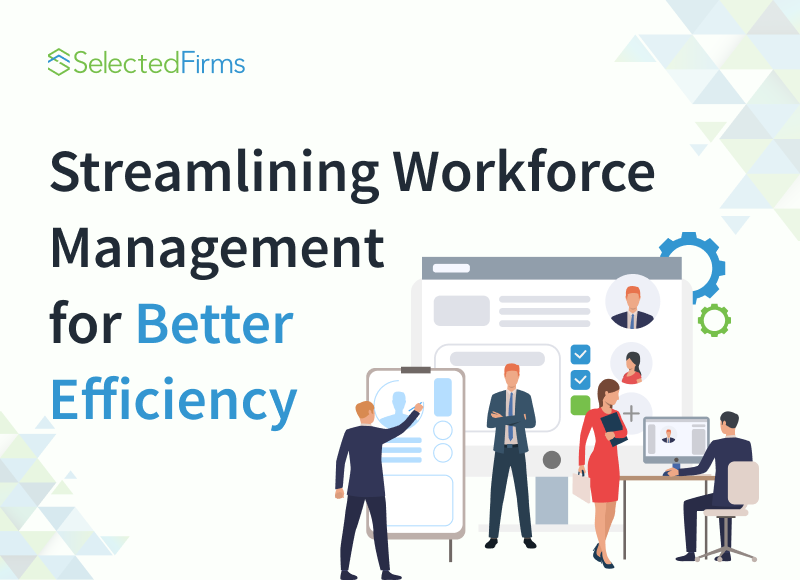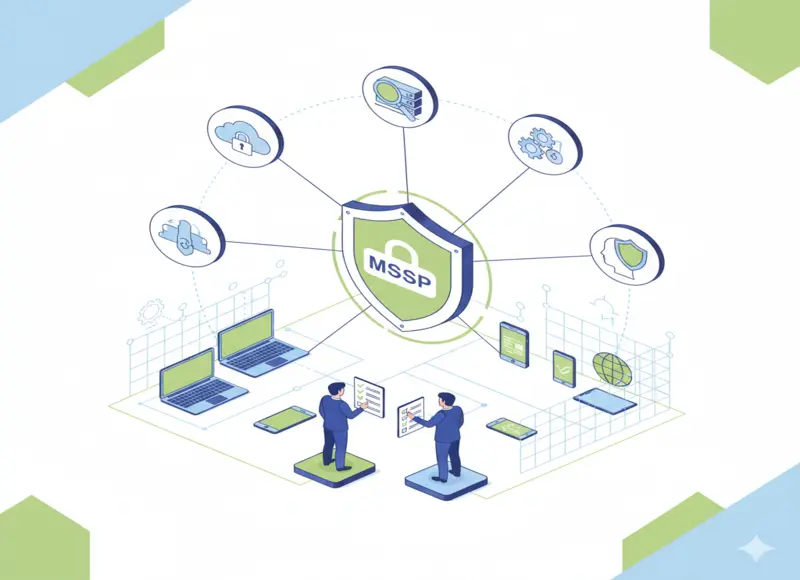Table of Contents
Choosing the right data platform partner helps healthcare organizations connect scattered systems, simplify patient information, and unlock smoother workflows—turning complex data into clearer insights that support better decisions and healthier patient o

Imagine walking into a hospital where your doctor already knows your medical history—not because you dragged in a file cabinet, but because your data flows seamlessly across systems. No duplicate tests. No missing records. No fax machines (yes, still a thing!).
That’s the power of modern data platforms in healthcare. Mountains of data get created with every scan, every wearable, and every insurance claim. Left unchecked, that data sits in its silo, leaving docs in the dark and patients vulnerable.
Hence, for the needs of healthcare organizations, specialized data platform partners should exist to ensure compliance and interoperability, and most importantly, to focus on patient care.
The Role of Modern Data Platforms in Healthcare
Data is essential in any way modern medicine is practiced nowadays, right-hand with the use of skills by physicians and nurses. Be it AI diagnostics to detect early signs of disease or predictive analytical tools to prepare hospitals for an influx of patients, the whole industry seems to be undergoing a transformation in terms of data-driven decision-making. It is no longer just about storage; it is now turning raw data into insights that matter in saving lives.
At the core of this transformation are modern data platforms. These systems handle the heavy lifting:
- Collecting data from multiple sources, such as EHRs, lab systems, wearables, and insurance claims
- Storing it securely at scale
- Integrating it across different systems to create a single source of truth
- Analyzing it for trends, risks, and opportunities
- Visualizing it so that doctors, administrators, and even patients can actually use it
Healthcare, however, comes with its special set of challenges. Data is not just large in volume but also highly sensitive and regulated. For a platform to remain compliant with HIPAA or GDPR, it must still work towards keeping its systems alive in real-time. Interoperability capability of exchanging information among hospitals, labs, and insurers in the same language is a constant stumbling block. Above all, a system should guarantee absolutely high performance since a few seconds of delay might mean a solution in healthcare.
That is why modern data platforms are no longer optional. They are mission-critical for every healthcare organization that wants to improve outcomes, reduce risks, and deliver patient-centered care.
Why Partner with a Data Platform Development Company
Building a modern data platform is not simple; otherwise, every healthcare provider would have already developed one. With the reality of creating a healthcare-grade system, it is so complex. It needs to be able to meet stringent regulations, comply with legacy systems, and provide indisputably secure real-time access.
This requires expertise in cloud architecture, APIs, HL7/FHIR standards, microservices, and data security. Most healthcare organizations cannot cover all of this in-house.
Specialized development companies fill that gap. They combine technical know-how with healthcare domain knowledge to deliver platforms that are scalable, compliant, and reliable. Partnering with such experts means faster deployment, smoother interoperability, and continuous support as data needs grow.
Leading Data Platform Development Companies in 2025
1. Edenlab
Edenlab, headquartered in Tallinn, Estonia, is a global leader in healthcare data platform development. The company is recognized for building scalable, high-load platforms designed to meet the critical demands of healthcare, including interoperability, security, and real-time accessibility.
The National eHealth System of Ukraine is one of the greatest achievements of Edenlab. It is one of the largest digital health projects in the world. The platform offers a unified ecosystem to connect hospitals, clinics, laboratories, pharmacies, and insurers, thus serving over 36 million users. The architecture of the system is based on microservices with HL7 FHIR, RESTful API, Kubernetes, and blockchain-like algorithms for data integrity and compliance.
Edenlab has also launched Kodjin Data Platform, a high-performance FHIR Server for complex healthcare data workflow. Kodjin enables real-time data exchange and analytics as well as third-party solution integration, thus making it a coveted option for digital health ecosystems.
Key strengths include:
- Expertise in HL7 FHIR standards and healthcare interoperability
- Proven success with large-scale healthcare systems
- Kodjin Data Platform for real-time data exchange and analytics
- A team with deep healthcare domain experience, including former WHO officers and HL7 representatives
Edenlab serves healthcare providers, insurers, and digital health innovators worldwide, delivering platforms that combine advanced technology with compliance, interoperability, and patient-focused design.
2. Databricks
Databricks, being a U.S. company, has played the role of Lakehouse architecture developer, blending the best attributes of data lakes and data warehouses. It offers a platform for smooth management of structured and unstructured data to enable analytics and AI-driven workloads.
In 2025, Databricks is worth $100 billion-plus because of massive investments in AI, machine learning, and real-time data analytics. Its Databricks Lakehouse Platform integrates with AWS, Azure, and Google Cloud, providing enterprise-grade scalability and performance.
Key features include:
- Delta Lake for reliable data storage
- MLflow for machine learning lifecycle management
- Real-time streaming analytics for instant insights
Databricks assists banks, retailers, hospitals, and manufacturers in innovating by sharing advanced data capabilities. The industries serve include finance, retail, healthcare, and manufacturing, among others.
3. Snowflake
Founded in 2012, Snowflake revolutionized data analytics by separating compute from storage in its cloud-native platform. This architecture allows companies to scale resources independently, optimizing cost and performance.
Multi-cloud deployments are supported by Snowflake and made possible so organizations can harmonize data from AWS, Azure, and GCP. The Data Marketplace is well known for allowing businesses to share and monetize data for the safe encouragement of inter-ecosystem collaboration.
Key advantages of Snowflake include:
- Near-zero management with automatic scaling
- High-speed data querying for analytics and BI
- Built-in security and compliance features
By 2025, Snowflake will remain a top choice for companies seeking powerful cloud-based data warehousing with minimal operational overhead.
4. Airbyte
Airbyte has grown to become one of the highly sought-after open-source data integration tools (ELT). As it stands, it offers its users over 400 pre-built connectors for APIs, databases, and applications. These connectors enable corporations to hasten the process of data ingestion and synchronize data from different sources.
One of Airbyte’s biggest strengths is its open-source model, which gives companies flexibility, transparency, and cost efficiency compared to proprietary ETL tools. Airbyte also offers a managed cloud version for organizations that prefer a fully hosted solution.
In 2025, Airbyte continues to expand its ecosystem with:
- AI-assisted connector creation
- Enhanced observability and monitoring tools
- Support for real-time data pipelines
This makes it a strong choice for organizations looking for affordable, flexible, and developer-friendly data integration solutions.
5. GoodData
GoodData, headquartered in San Francisco, is engaged in embedded analytics and AI-powered business intelligence. This platform enables organizations to embed real-time analytics within their applications, thus dispensing insights to end-users without the need for a separate BI tool.
Key features of GoodData include:
- Generative AI capabilities for automated insights
- Contextual analytics integrated into business workflows
- Scalable cloud-native architecture supporting thousands of concurrent users
GoodData serves as a platform for over 3.6 million users with 140,000 companies relying on it to create data products and applications embedded with analytics and AI for internal or customer-facing purposes.
How to Choose the Right Data Platform Development Partner
Selecting the right partner is crucial for success. Key factors to consider include:
- Industry Expertise: Look for proven healthcare knowledge and compliance with standards like HL7, HIPAA, and GDPR.
- Technology Stack: Modern tools such as microservices, Kubernetes, and FHIR ensure scalability and interoperability.
- Cloud and Integration: Experience with multi-cloud environments and API-first integration is essential.
- Security and Compliance: Strong data privacy, certifications, and audit readiness should be non-negotiable.
- Scalability: Platforms must handle high volumes of healthcare data without performance issues.
- Long-Term Support: Choose a partner offering continuous updates, training, and managed services.
Conclusion
In healthcare, choosing the right data platform partner can make all the difference. Not only does the perfect partner build a secure and scalable system, but it also turns complex data into insights to improve patient care and increase efficiency.
Over time, the right partner ceases to become merely a technology provider in the life of a healthcare organization. It becomes a trusted ally that helps healthcare organizations unlock the true value of their data and deliver better outcomes for the people who matter most, i.e., patients.
Recent Blogs
How Upgrading PC Supports AI-Powered Tools and Smart Technology Use
-
30 Jan 2026
-
6 Min
-
269








